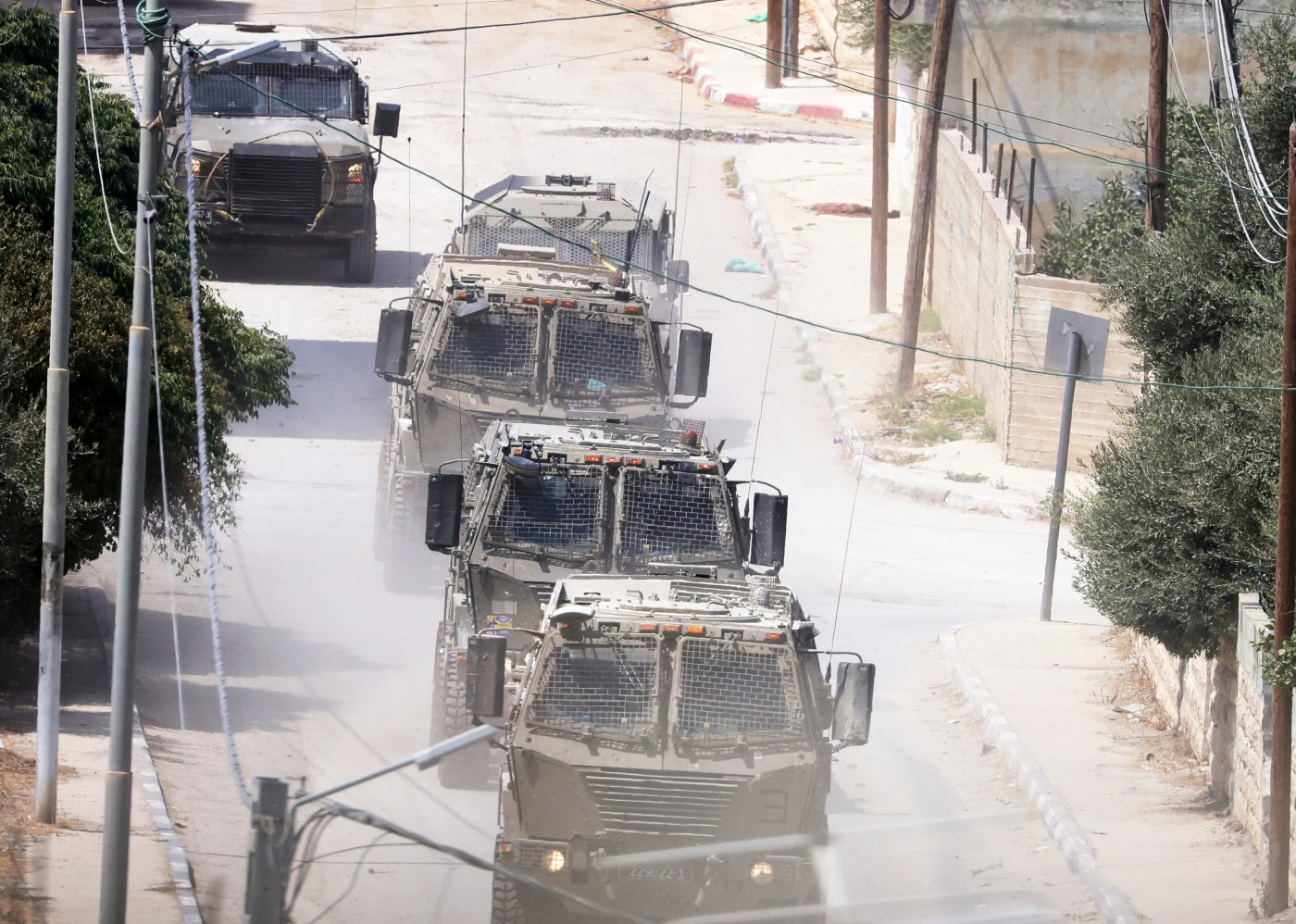US Contradicts Netanyahu on Key Issue at Heart of Gaza Ceasefire Dispute
The White House has stated that achieving a ceasefire and hostage release deal in Gaza would necessitate Israeli forces withdrawing from a strategic corridor over which Israeli Prime Minister Benjamin Netanyahu has repeatedly vowed to maintain control.
The Philadelphi Corridor lies on the border between the Gaza Strip and Egypt and includes the Rafah crossing, and was seized by Israeli troops in early May as previous ceasefire negotiations fell through.
A three-phase proposal outlined by President Joe Biden later that same month called for the exit of the Israel Defense Forces (IDF) from densely populated areas of Gaza that National Security Council communications adviser John Kirby affirmed Tuesday would include parts of the Philadelphi Corridor.
"The deal says that they have to remove the IDF from all densely populated areas in phase one," Kirby told reporters. "That includes densely populated areas around, or are adjacent to, the Philadelphia Corridor where it intersects with those densely populated areas.
"That's what the proposal says," he added. "That's the proposal that was put forth at the end of May. I'm not going to get into amendments one way or another, that have subsequently been discussed, I'm not going to negotiate this in public one way or the other."
Speaking at a press conference Monday, however, Netanyahu offered a fiery defense of Israel's continued presence along the Philadelphi Corridor. He called it a "Hamas' lifeline and armament line" and asserted that "the axis of evil needs the Philadelphi Corridor—we need to hold it."
Reached for comment, Hamas Political Bureau member and spokesperson Basem Naim denied the existence of active underground tunnels that would allow the group to continue to obtain weapons and other supplies along the Egypt-Gaza border.
"There are no tunnels between Egypt and the Gaza Strip in Rafah," Naim told Newsweek, "and all these statements are to justify their continued presence in the Philadelphi Corridor."
The IDF called into question Hamas' integrity, telling Newsweek that, "Hamas is a terrorist organization and its statements are not reliable and cannot be depended upon."
The U.S. had previously called on Israel not to launch large-scale military operations in Rafah amid hopes for a breakthrough in the early May negotiations. Netanyahu's office said at the time, however, that the proposal on the table did not adequately meet Israel's demands and began the operation.
During his remarks on Monday, Netanyahu acknowledged that he had faced "considerable pressure" from abroad to not invade Rafah, including a war crimes investigation opened shortly after by the International Criminal Court and being "subjected to an embargo that is spreading."
"We paid with the lives of our soldiers," Netanyahu said at the time. "But this is nothing compared to what will be directed against us if we leave. Everyone understands the importance of this, but do not support us; they want us to finish the war. This, in effect, is what everyone wants—for us to finish the war."
The Israeli premier also stated that Israel had agreed to the U.S. proposal outlined by Biden in late May, and had also endorsed versions of a "final bridging proposal" put forth by the U.S. alongside meditators Egypt and Qatar last month, only for Hamas to refuse.
"I said that they have moved a little, but the moment they think that there is any weakness on our part, or some pressure that will break us, they backtrack," Netanyahu said. "Therefore, we are not leaving."
Netanyahu's office referred Newsweek to Israeli premier's remarks made on Monday, along with comments directed on Tuesday to former wartime cabinet member Benny Gantz, who resigned alongside observer Gadi Eisenkot in June over increasingly public differences over the course of the war.
Gantz, who leads the National Unity part, accused Netanyahu on Sunday of prioritizing "political considerations" over securing a ceasefire and hostage deal amid mounting discontent and growing protests in Israel demanding an immediate deal. He said Tuesday in a speech alongside Eisenkot that IDF "watchtowers on the Philadelphi corridor would turn into troops into ducks in a row."
Netanyahu's office responded by issuing a list of accomplishments throughout the war and the importance of the capture of the Philadelphi Corridor. An accompanying statement warned that "whoever does not contribute to the victory and the return of our hostages, it would be best not to get in the way."
Kirby said on Tuesday that he was "not going to get into a debate with the prime minister and what he said over the weekend about the Philadelphi Corridor," but emphasized that Israel had already committed to leaving the area in line with the initial agreement and all subsequent versions.
"That's the proposal that Israel had agreed to," Kirby said. "And again, we're going to continue to work on this as hard as we can."
He noted that Israeli officials have said "they would need some security along that corridor" even if a ceasefire deal was reached, but reiterated that "the proposal says that they have to remove themselves to the east from densely populated areas, and that core essential element of the proposal has not changed."
Hamas, for its part, has also said it agreed to the U.S. proposals and has repeatedly accused Israel of deliberately adding conditions, including those surrounding the fate of the Philadelphi Corridor to obstruct progress toward a ceasefire and hostage release amid mounting casualties in a conflict that is nearing the 11-month mark.
About 1,200 people were killed and around 250 were taken hostage, around half of whom have since been recovered, in the initial Hamas-led attack on October 7, 2023, according to Israel officials. The Palestinian Health Ministry based in Gaza has estimated that more than 40,800 have been killed in the Hamas-held territory throughout the ensuing war.
Hamas and Israel have blamed each other for the deaths of six hostages, including dual U.S.-Israeli citizen Hersh Goldberg-Polin, found by the IDF in Gaza on Saturday. Kirby also held Hamas responsible for their killings, which he said "underscores the sense of urgency" to achieve a deal.
This is a developing news story. More information will be added as it becomes available.
Disclaimer: The copyright of this article belongs to the original author. Reposting this article is solely for the purpose of information dissemination and does not constitute any investment advice. If there is any infringement, please contact us immediately. We will make corrections or deletions as necessary. Thank you.

